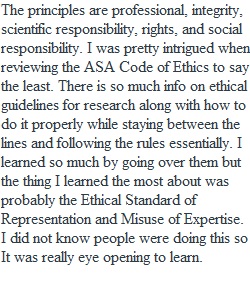


Q Instructions: The purpose of these recap discussion boards is to create dialogue and analytical discourse about the material covered in the chapter. In answering the recap discussion questions, you should engage in meaningful discussion with your fellow classmates as well. Your responses, your initial post and your secondary posts, should be about a paragraph (5-7 sentences) in length. Please make sure to pay close attention to the specific due dates for each discussion board. You can contact me directly if you have any questions and please make sure to review the discussion board rubric under 'Course Resources'. Due Dates: **Initial post due 9/11 Please respond to the following question(s) with at least 5-7 sentence paragraph responses per question. **Secondary posts due 9/13 You should respond to at least two of your classmates post by the above due date. Your responses should be substantial, meaning they should be about 5-7 sentences in length and relate to your classmates post in some way. Please review the discussion board rubric on the course site for an elaboration on the grading criteria. Question: 1. Look up the American Sociological Association’s full Code of Ethics, which includes ethical guidelines for research as well as guidelines for the other roles that sociologists play, such as teaching, at http://asanet.org/images/asa/docs/pdf/CodeofEthics.pdf (Links to an external site.). Can you find the five principles noted previously? What more have you learned about the ASA Code of Ethics by reviewing the full code online? Give specific examples from the ASA Code of Ethics in your answer. Do you agree that these provide substantial protection for human research subjects? What are some similarities/differences between the code of ethics for humans and those protecting other species?
View Related Questions